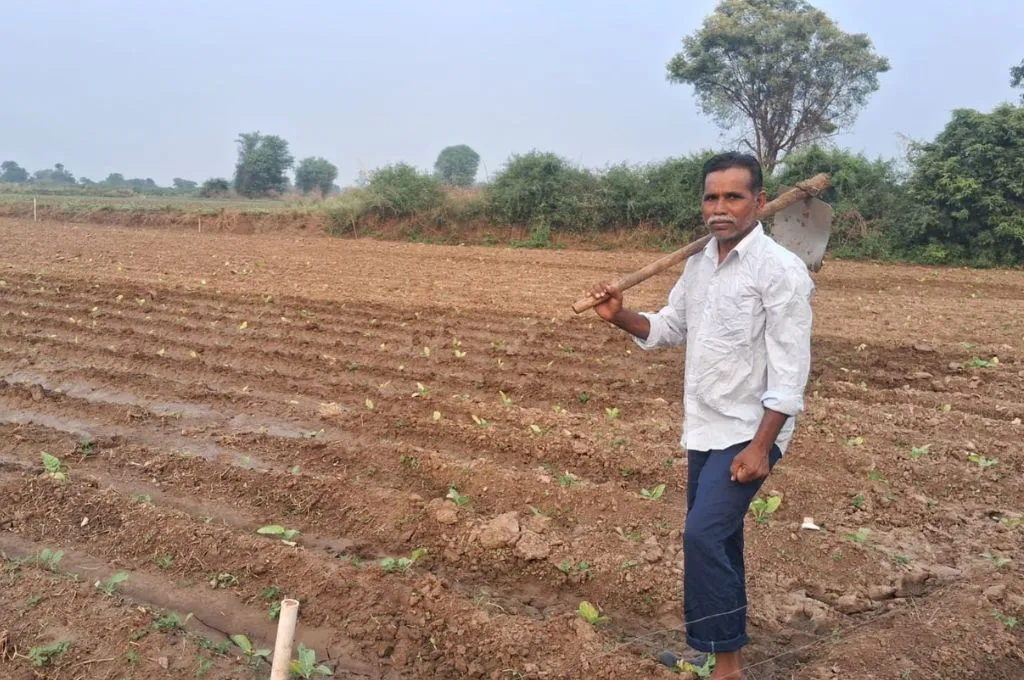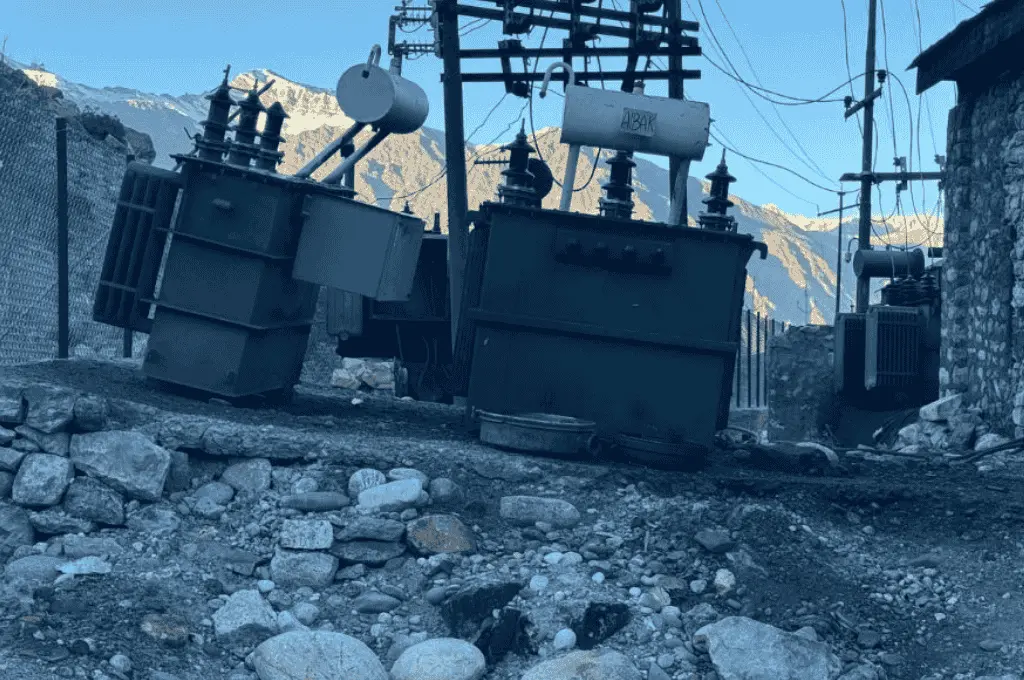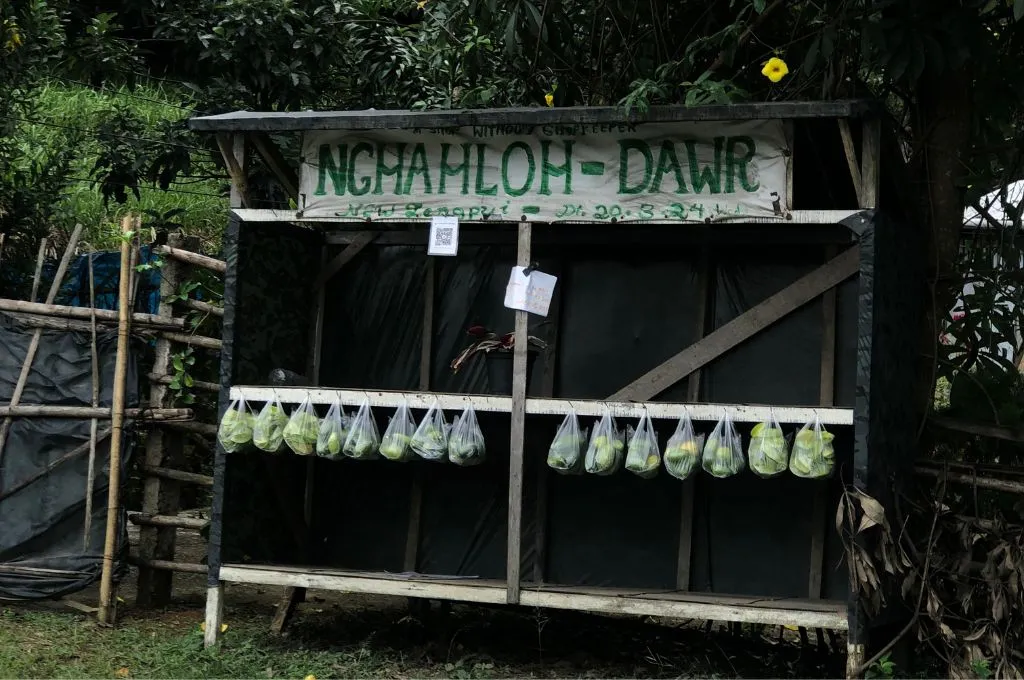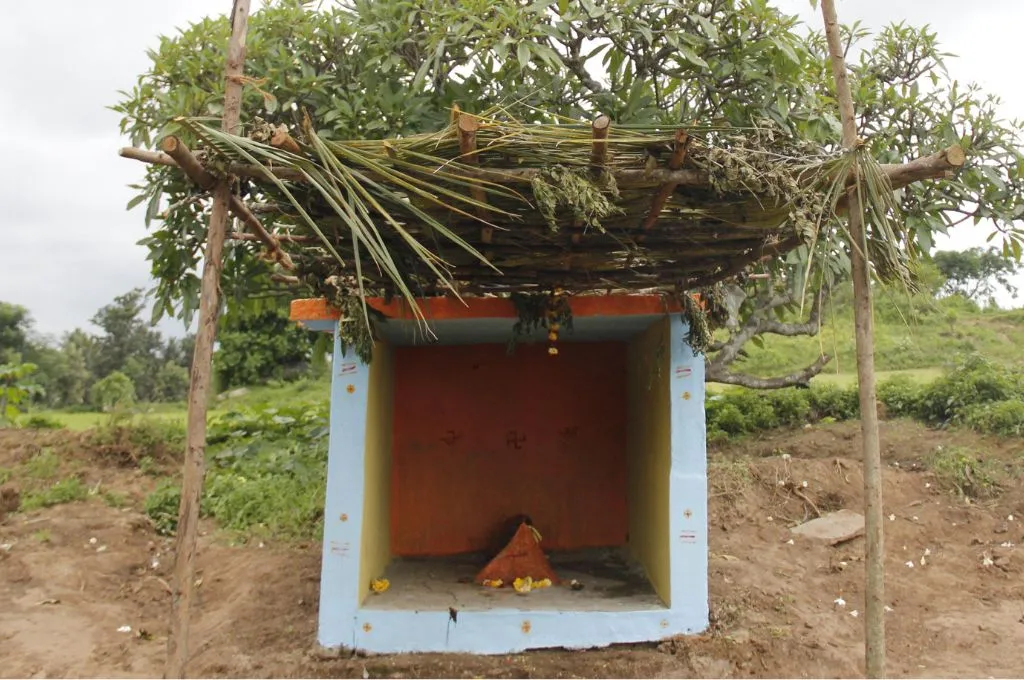52 tendu leaves
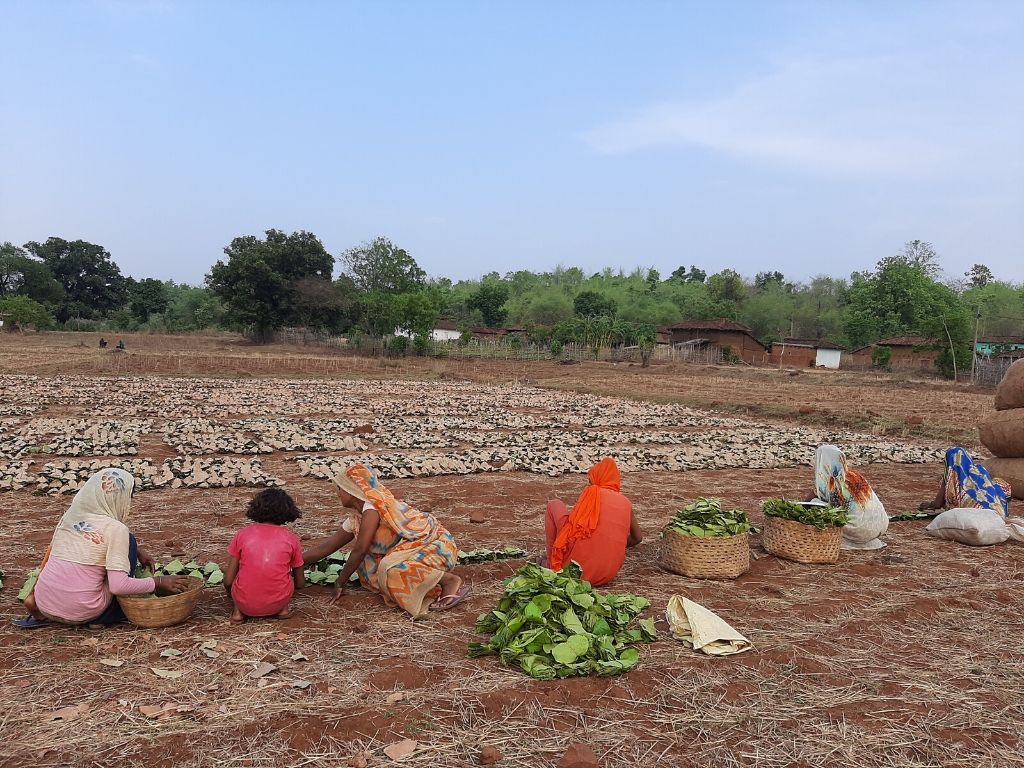
The Mahatma Gandhi National Rural Employment Guarantee Act (MGNREGA) has become an important driver of the rural economy in light of COVID-19 and the lockdown across the country. Yet, in most of the villages of Jaisinghnagar block, Shahdol, the work either did not start, or came to a standstill soon after.
Mid-May onwards, at the break of dawn, villagers of all ages from Jaisinghnagar could be seen walking with a gamcha (towel) and a water bottle toward the forests. They were on their way to collect tendu leaves, which are used for making beedis. For every 100 gaddis (bundles) made of 52 tendu leaves each, a person earns INR 250. On average, a family earns about INR 3,000 to 4,000 per month. The leaves are bought by the village collector, colloquially known as the fund munshi, who further sells it to the contractors assigned by the state.
This is a crucial economic activity for communities in this region during the summers, and they prefer it over MGNREGA work, which is often characterised by substandard wages, delayed payments, and hard work under the scorching summer sun. On the other hand, tendu collection (or other non-timber forest produce), promises a fixed amount which they get within a week, a respite from the summer heat, and limited bureaucratic supervision.
As we work on recovery post-COVID-19, it is important to also look beyond MGNREGA and consider other, localised options. At the same time, there is a need to remove bottlenecks in the implementation of MGNREGA, and factor in ground realities to make it a more viable option.
Iqra Khan currently works at PRADAN.
—
Know more: Read about the reforms needed in MGNREGA to strengthen its role in reducing the COVID-19 induced crisis in rural India.
Do more: Connect with the author at iqra786nizz@gmail.com to learn more about her work and extend support.
